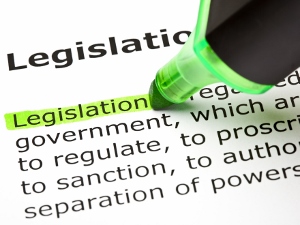
Op-Ed: Why Australian red hot property space is under the spotlight
Property prices are defying expert predictions!
Logging an exponential rise in house prices, the Australian property market has certainly taken the world by storm since the beginning of 2021. Australia seems to be at the brink of its ‘biggest ever property boom’ amid ultra-low interest rates, government initiatives for first-time home buyers, FOMO-driven mindset, and undersupply of new houses.
From home loan finance commitments to auction clearance rates, we can see green shoots gleaming in each segment of the property market. Clearly, the housing market is defying the analysts’ predictions provided a year ago, which anticipated a dip of 25-30 percent in property prices in 2021.
Is the Australian property market becoming too hot to handle?
We cannot neglect that boom-bust cycles are an intrinsic feature of property markets. The real estate booms are usually accompanied by sharp increases in leverage and fast credit growth that are the true source of vulnerabilities, as evident in the current scenario. Thus, the ongoing real estate boom has also sparked fears of a potential explosion in the property bubble.
At a time when the property market is up and running, concerns are mounting over the possibility that runaway in housing price rises can swell the level of Australian household debt.
[pro_ad_display_adzone id=”15046″ align=”left” padding=”20″]It has been seen in the past that surging house prices coupled with low-interest rate prompt households to take on higher debt, convincing ‘banks seeking credit growth’ to take greater risks to accommodate increased demand. Needless to say, this risky lending can pile up the already worrisome level of household debt in Australia.In fact, the problem does not end here. This high household debt can further result in weak household spending in future in the absence of significant income growth, creating a debt overhang effect.
Furthermore, surging property prices seem to be posing a risk to the nation’s financial stability besides widening the housing affordability problem. A pronounced correction in property prices can occur in case housing prices begin to catch up with the fundamentals, exposing lenders to huge losses on higher debt. This can put the health of the banking system at a greater risk, potentially threatening financial stability.
Is it too early for policymakers’ intervention?
Undoubtedly, the overheated property market has already piqued the concerns of policymakers, with the central bank and APRA keeping a close watch on the housing trends. However, the opinions of RBA seem to be subsiding fears of a potential bubble burst to some extent.
According to RBA, the demand for new housing finance has been strong, and the high level of loan commitments indicate that housing credit growth is likely to increase in the months ahead. However, the central bank sees no notable evidence of a deterioration in property lending standards. Akin to RBA, we have seen APRA ruling out an immediate intervention amid the current level of mortgage debt and house price growth.
All in all, the regulators appear to stand in a tough spot while choosing between increasing credit availability to stimulate the economy or putting the brakes on mortgage lending to cool off the property market.
No doubt, macroprudential measures like imposition of limits on different aspects of mortgage credit or higher capital requirements can mitigate the risk of elevated household debt to a large extent. However, risk lingers that these measures can quickly reverse the house price boom, inviting a sharp correction in prices.
The current scenario calls for a thorough investigation into the early warning indicators. Besides, careful designing of monetary policy tools and timing of intervention, backed by solid economic logic, could ease the concerns about runaway house prices.
Author Bio:
Mr. Kunal Sawhney, CEO, Kalkine
Kunal Sawhney is the founder and CEO of Kalkine. An accomplished financial professional, he has extensive expertise in equity markets and adopts quantitative and qualitative stock selection practices.
Kunal Sawhney: Entrepreneur with revolutionary ideas; financial professional with wealth of knowledge in Equities, aiming to transform the delivery of equity research through tech-driven digital platforms.
With his knowledge, skillset, and overarching vision, Kunal established one of the fastest growing equity market research firms across Australia in year 2014; and subsequently, in other emerging & developed markets – Kalkine – A business that is based on Digitally Powered Architecture and Extensive Data Science led Premium Research. Kunal’s entrepreneurial and commercial skills backed by the passion to establish a tech-empowered research platform, helped in building Kalkine’s global presence across diverse geographies – Australia, New Zealand, Canada, and the United Kingdom. Further, the plans for the US launch in 2021, have set the premise for attaining an all-encompassing client reach for Kalkine’s Subscription and Media Operations.
With a Master of Business Administration degree from University of Technology, Sydney; Kunal’s business acumen has enabled his brainchild, Kalkine, help clients navigate through equity related matters in a proficient and seamless manner.
Kunal is featured regularly on CNBC, Sky Business, Biz News, Daily Mail, Yahoo Finance, KCBS Radio (Audacy), Bloomberg, Sydney Morning Herald, Global Banking and Financial Review and many more.







Great post! Thanks a lot.